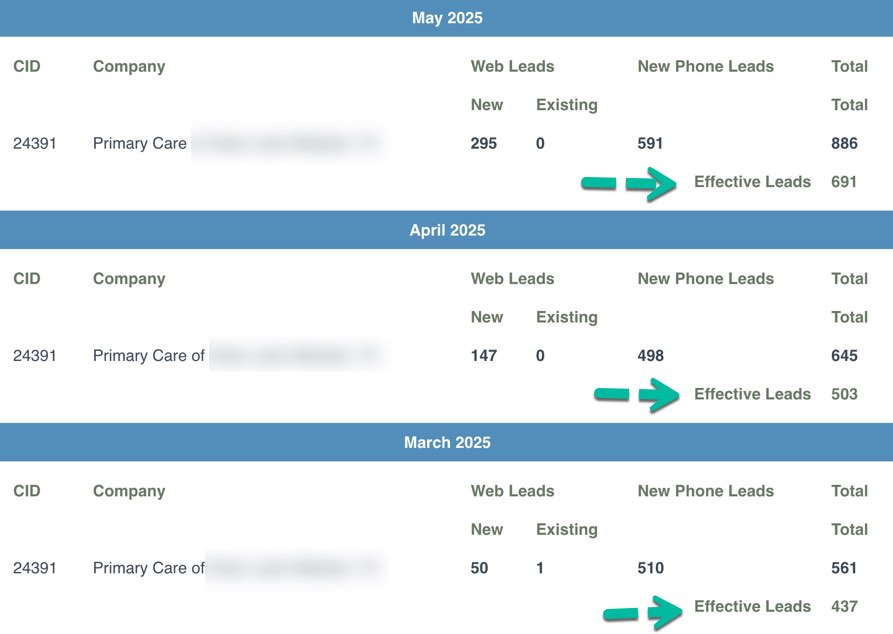ZocDoc competitors: This analysis is from PatientGain’s perspective, which competes with ZocDoc. How ZocDoc competes with your local SEO presence
If you add ZocDoc to your Google My Business, Google Business Profile (GBP), you are actually competing with your own GBP & local SEO.
- Direct competition in paid search: ZocDoc buys ads for high-volume, generic search terms that a patient in your area would use, such as “dentist in [city]” or “primary care doctor near me”. These ads often appear above your practice’s organic local listings and even above your own paid ads, redirecting potential patients to the ZocDoc marketplace.
- Branding vs. marketplace: When a patient clicks a ZocDoc ad, they are funneled into the ZocDoc experience, not your brand experience. They see a list of competing providers, potentially including your own practice alongside others. The brand that gets the initial interaction is Zocdoc, not your practice.
- Self-competition: If you are a Zocdoc provider and also run your own Google Ads, you can end up competing against yourself. A user, patient searching for a provider might see both your ad and a Zocdoc ad. If they click the Zocdoc ad, you will have essentially paid twice: once for your own ad campaign and again via the Zocdoc booking fee if they book with you through their platform.
- Influence on local SEO: The presence of ZocDoc’s highly optimized ads and profiles on Google can push your practice’s organic listings further down the page. ZocDoc leverages its high domain authority and aggressive ad spend to dominate search results for local healthcare searches, making it more challenging for smaller practices to stand out organically.
The conflicting dynamic of Zocdoc on GBP – Google Business Profile
This PPC competition exists in parallel with Zocdoc’s official integration with your Google Business Profile, which adds a layer of conflicting strategy.
- ZocDoc integration on GBP: Zocdoc partners with Google to place a booking button directly on your GBP listing. This is often presented as a free way to get bookings.
- The conflict: While the GBP button might lead to a “free” booking, Zocdoc is simultaneously spending its own marketing budget on PPC ads that intercept patients before they ever reach your GBP listing. If a patient clicks a ZocDoc ad, the booking is not free; it comes at the high, per-patient cost associated with the ZocDoc marketplace.
A strategic perspective for your healthcare practice
The key takeaway is that ZocDoc’s model involves leveraging its market power to influence patient behavior at different stages of the search journey.
- At the discovery stage, ZocDoc uses PPC to capture patients who are searching for a provider but haven’t decided on one. They divert this traffic to their marketplace, where you compete with other providers.
- At the consideration stage, ZocDoc offers integration with your GBP to capture bookings from patients who may already be considering your practice. While this provides a convenient booking option, it can reinforce your dependency on the platform.
For a practice, this means you must decide whether the new patient volume from ZocDoc is worth the high acquisition cost and the increased competition. Many practices use ZocDoc strategically for a period to gain initial momentum and they do not use ZocDoc reviews (ZocDoc Reviews are owned by ZocDoc – not by you) , then focus on building their own digital marketing presence (SEO, website conversion, direct reviews on Google My Business) to reduce long-term dependency on ZocDoc’s paid and costly ecosystem.
This analysis is from PatientGain’s perspective, which competes with ZocDoc.
PatientGain recommends that healthcare practices should not use ZocDoc’s “Book Now” on Google My Business / Google Business Profile. However you can pay for the leads that originate from their native platform OR you can simply you proven healthcare marketing offering from PatientGain, without paying for every appointment.
Example: Leads dashboard with number of new leads for a primary care practice.

